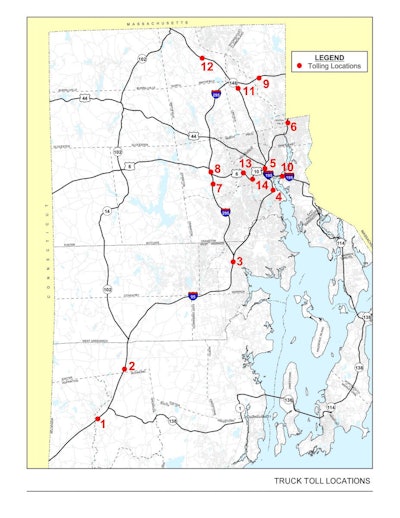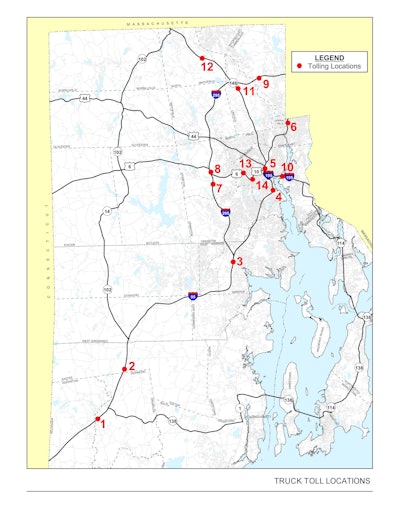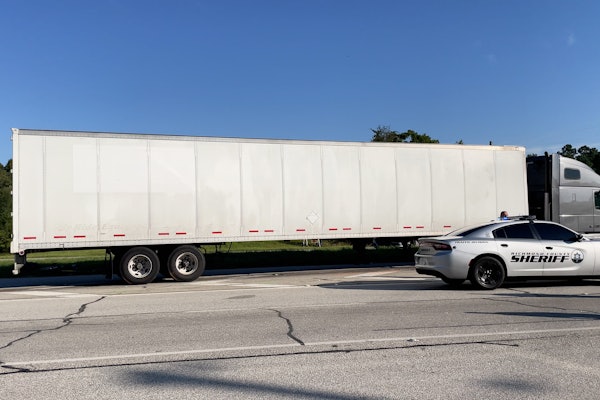
 A map of the truck tolling locations specified by the Rhodeworks plan.
A map of the truck tolling locations specified by the Rhodeworks plan.Rhode Island officials won’t deliver the state’s truck-only tolls until after Christmas, to allow sufficient time for comment on the environmental impact of initiating tolling at the first two of 14 locations where gantries will be built.
This month, the Federal Highway Administration authorized release of the state transportation’s environmental assessment of implementing tolling along I-95 on Mechanic Street in Richmond and the Tefft Hill Trail Bridge in Exeter. On Nov. 21, RIDOT will host a workshop and public hearing in Richmond to take comment on the assessment.
Upon receiving this feedback, the FHWA determines if impact from tolling is sufficient to merit an environmental impact statement. Longtime toll opponent Chris Maxwell, president of Rhode Island Trucking Association, believes the more intensive EIS is needed to make an informed decision.
RIDOT Director Peter Alviti Jr. told WPRO-AM truck tolling’s rollout has been postponed from last month to February or March. “It’s just taking longer for us to do it,” Alviti said. “The governor has instructed us to take as long as we need in order to make sure that all the systems and all of the permitting and all of the legal obligations are met to the T.”
The environmental assessment notes RIDOT has not set rates for Richmond and Exeter, but assumes “conservative range” of $3.50 to $4.50 per toll location. Tolls are limited to once per toll facility per day in each direction, with a $20 total to travel I-95 from Connecticut to Massachusetts. Tolls cannot exceed $40 per day.
The agency determined the tolls won’t have a “substantial impact” because they were formulated to balance with the value of time. Truckers would add 6 minutes to their trip by taking State Route 3 to avoid these tolls.
On Nov. 8, the American Transportation Research Institute, the research segment of the American Trucking Associations reported that hiking the federal fuel tax would be the “only meaningful” means of supporting large-scale infrastructure program.
“While several toll systems slightly improved their administrative efficiency, the majority of toll systems spend more than ten cents of every dollar collected on administrative activities,” ATRI states. “Many systems are losing money, and almost all privatized toll roads in the U.S. have filed bankruptcy. Finally, ATRI’s analysis found that many toll authorities have modified their public financial statements to increase complexity and decrease transparency of revenue management.”










